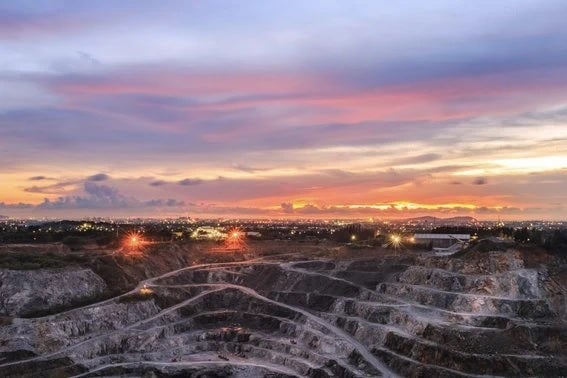
The mining industry is inherently dangerous. Large, mobile equipment moving about in confined spaces with aggressive production targets makes for challenging circumstances for the safety and health departments of mining operations around the world.
Every miner home safe, every day . . . to make it a reality, mines need to embrace technology.
It isn’t difficult to understand that, to save lives, miners need to be more aware of their surroundings and empowered to take the necessary action to secure their safety at the moment in time that their safety is at risk.
At RAMJACK Technology Solutions, we supply and implement a range of solutions designed specifically to improve operator awareness, increase communications efficiency and track miner locations to ensure everyone who enters an operating mine is kept safe.
Instrumentation monitoring
Miners work in harsh conditions where the surrounding rock and the air they breathe can have a significant impact on their chances of leaving work alive. To monitor the miner’s workplace, RAMJACK partners with specialists in ground movement monitoring and experts in air quality monitoring and gas detection – to ensure real-time alarms and thresholds are set to warn miners of increasing risk.
Fatigue management
Science-backed, wearable fatigue monitoring systems make it so mines are now able to predict fatigue before the onset of dangerous microsleeps – previously impossible to do with camera-based reactive technologies. The latest wearable solutions are simple and comfortable and are capable of eliminating fatigue-related incidents from your mine, whether on surface or underground.
Proximity detection & collision avoidance
With mining authorities around the world adopting strict legislation regarding worker safety, technology companies are being tasked with not only providing awareness to operators, but also recognizing the need to take control when danger is imminent. With only a handful of OTMs able to comply with the strict legislation, it is important to make the right decision with which technology to adopt.
Increasing Communications Efficiency
Persistent sensor networks
The geotechnical, hydrological and environmental sensors that form the monitoring programs of every mining operation provide critical information about potential hazards to miners. Ensuring the data from these sensors is available automatically and in real-time is the difference between being able to ‘save lives’ and ‘explain accidents’.
Reliable communication backbones
Both open-pit and underground mines struggle with communications reliability. In underground mines, getting reliable communications from the mining face to surface has evaded C&I engineers since the dawn of time. On surface, high pit walls, dense forests and rolling topography can cause major challenges to reliable communications. RAMJACK is proud to be among the leaders in bringing the latest in communication backbones to the mining industry. These new technologies (LTE, Wireless Fiber, MPLS, etc.) are changing the way mines operate for both open-pit and underground operations, while also ensuring backwards compatibility to more traditional networks (VHF/UHF, Wi-Fi, etc.).
Tracking Miner Locations
Wi-Fi tracking
The use of Wi-Fi in both open-pit and underground mines is prolific. As battery efficiency improves so does the ability for technology companies to introduce tracking using Wi-Fi signals.
BLE tracking
Using Bluetooth Low Energy to replace the old RFID-style tracking has become a more reliable and affordable way to know where people and equipment are. BLE readers and beacons are readily available and easily configured to ensure easy tracking of various types of assets.
GPS underground
Using satellites in the sky has long been the most reliable method for tracking miners and mining equipment on surface. Until recently, it was impossible to use GPS-enabled devices for tracking underground. The latest tracking technology actually uses the real GPS signals and propagates them to devices underground while providing a seamless transition from UG workings to surface; it also is able to provide <2m accuracy on x,y,z locations in underground ramps and tunnels.

